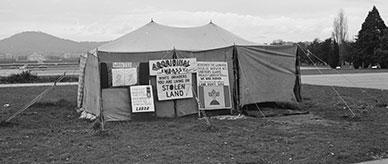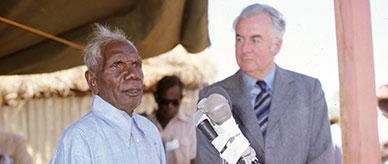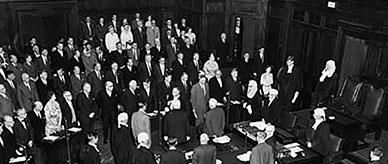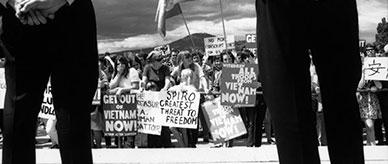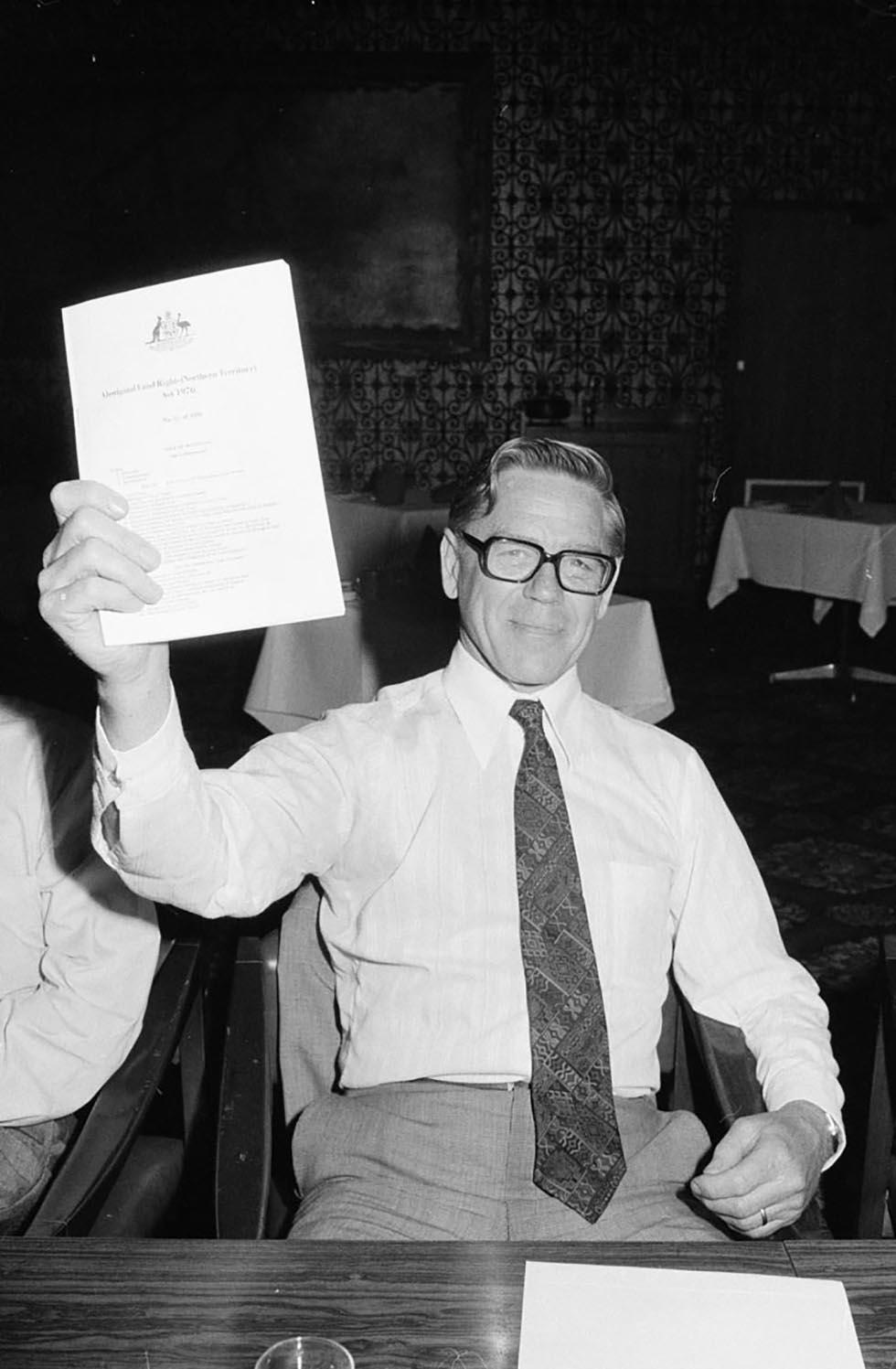


About this record
This black-and-white photograph was taken on 19 December 1976. It shows a smiling Barrie Dexter, then Secretary of the Department of Aboriginal Affairs, in shirtsleeves and a tie and seated at a table. Dexter is holding aloft a copy of the Commonwealth Aboriginal Land Rights (Northern Territory) Act 1976 in what appears to be a gesture of triumph. The occasion was the farewell lunch held on his retirement, when he was presented with a copy of the Act.
Educational value
- The document Barrie Dexter holds represents a landmark in the history of Aboriginal and Torres Strait Islander peoples rights in Australia. The Act provided the first legal recognition, by the Australian Parliament, of the right of Aboriginal and Torres Strait Islander peoples to claim ownership of land on the basis of traditional occupation.
- The Act was limited to government land and applied only to the Northern Territory (which was still under Commonwealth control). Nevertheless, the Act was a significant milestone in Aboriginal and Torres Strait Islander peoples rights.
- In 1967 Dexter was appointed by the Gorton government to the Council for Aboriginal Affairs, along with Dr Herbert Cole (HC) ‘Nugget’ Coombs and William Edward Hanley Stanner. He was active in the successful 1967 referendum campaign. Dexter was Director of the Office of Aboriginal Affairs from 1967 to 1972 and in 1973 he became the first Secretary (head) of the new federal Department of Aboriginal Affairs (DAA), serving until 1976.
- Barrie Dexter is shown at the end of his term as Secretary of the DAA. The creation of the DAA in 1972 marked a significant departure from previous approaches to Aboriginal policy. It signalled that the Whitlam Labor government intended to pursue Aboriginal and Torres Strait Islander policy making and service delivery at the national level. The DAA led the implementation of a new policy aimed at achieving self-determination.
- Dexter’s evident pleasure at the passing of this Bill reflects his years of commitment to Aboriginal and Torres Strait Islander rights and his role in advising on the Bill. His smiling demeanour as he holds the Act aloft hints at his feelings of satisfaction following the difficult history of the legislation. The Aboriginal Land Rights (Northern Territory) Bill had passed in the House of Representatives and was before the Senate when the Whitlam government was dismissed in November 1975. Renamed, redrafted and passed with bipartisan support in 1976, it was finally brought into force in 1977.
- The Aboriginal Land Rights (Northern Territory) 1976 Act was a further step in the movement of Aboriginal and Torres Strait Islander peoples towards self-determination. This movement had its origins in the land rights movement of the 1960s and early 70s which included the 1963 Yirrkala Bark Petitions, the 1966 Wave Hill walk-off, and the 1972 Larrakia petition. In 1972 the ‘Tent Embassy’ was established outside (Old) Parliament House in Canberra in order to increase pressure for Aboriginal and Torres Strait Islander peoples land rights.
- The Aboriginal Land Rights Act was based on the findings of the 1973–74 Royal Commission, set up by Prime Minister Gough Whitlam to find appropriate ways to recognise Aboriginal land rights in the Northern Territory. Central to its recommendations were the recognition and strengthening of Aboriginal and Torres Strait Islander claims to land; giving rights to land as basic compensation for injustice; and granting title to traditional lands.
Acknowledgments
Learning resource text © Education Services Australia Limited and the National Archives of Australia 2010.
Related themes
Need help with your research?
Learn how to interpret primary sources, use our collection and more.

